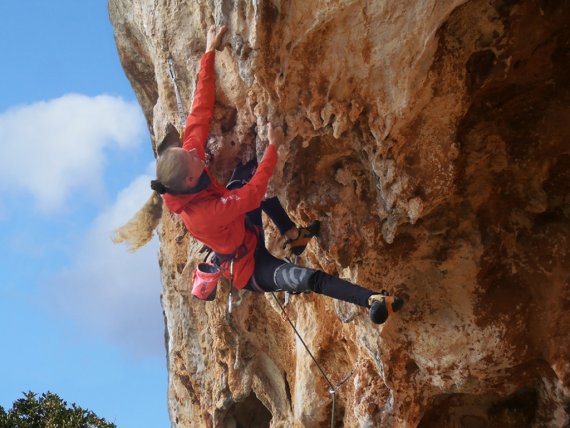
ISPO.com spoke with these industry experts:
- Matthias Zaggl, Fabric Future Develeopment W.L. Gore & Associates.
- Andy Schimeck, Global Sales Director Equip Outdoor Technologies UK and Managing Director Equip Germany
- Mark Held, President European Outdoor Group
- Jost Wiebelhaus, Owner Frankfurter Laufshop
- Ralph Scholz, CEO Fitness Connected
This is what they see as important for the sports industry in the future.
Over the past twelve months, we have experienced the effects of Covid-19 in all aspects of our lives - personal, professional and social. "The pandemic has changed the way we live, forcing us to rely on virtual means of communication and limiting social interactions," said Zaggl. "Since the pandemic began, awareness of health and health maintenance has been on the rise."
This is also underscored by numerous studies, such as the GSK's, that show increased health awareness due to Covid-19. "More people are spending time outdoors as a result - keeping fit and recovering. This has generated new consumers who are actively 'outdoors' and continues to increase in areas such as running, cycling, hiking, trekking and ski touring."
During this time, he said, people have also become more socially conscious, "especially about the environmental challenges we all face and the obligation to protect our planet. Consumers are rethinking what they buy and who they buy it from. They are trying to support brands that offer a responsible alternative and make sustainable commitments." Zaggl observes.

That's why, according to Zaggl, it will be important in the future to take into account the new behaviors of end users and work together as an industry to deliver sustainable products "that serve their purpose, are durable and leave a small environmental footprint."
Zaggl encourages sharing, "Covid-19 has created many challenges. I'm convinced that if we work together to find innovative solutions, harness the spirit of collaboration, and build strong alliances through which we can maximize our resources, we can overcome them."
The negative effects of the lockdown, which varies in length and restrictiveness depending on the country, with the accompanying forced closure of brick-and-mortar retail are still difficult to foresee, Andi Schimeck agrees.
"We can only master this situation with a good and close partnership between retailers and brands. As Helmut Schmidt already said: In a crisis, character proves itself." Schimeck is sure that the outdoor industry in particular will continue to grow in 2021 if all partners work well together and deal with each other openly.

The consumer has become more conscious and acts more sustainably, Schimeck sees it similarly to Zaggl.
He concludes: "This is positive for all specialized retailers who can serve this demand well with the sustainable outdoor and sports brands. This way will be crucial to be successful in the future, even after overcoming the crisis caused by the pandemic."
At Equip, he said, they are very aware of their social responsibility: "We know we need to act quickly and decisively. This is reflected in our commitment to achieve Net Zero by 2030 and the fact that we have been a certified carbon neutral company since 2020."
Mark Held sees two very different issues facing the sports industry right now: "The first is how to cope with the short term impacts of of Covid as these are so immediate and involve a scramble to find a route to consumers that is sadly, without physical contact."
The second and longer-term challenge, he said, is "what we learn from the pandemic and how we can adapt our business models to reflect both the increase in interest in the outdoors, and the rise of online as the simplest route to market."

"I have long been convinced that both physical, bricks and mortar, and online can co-exist, but most definitely not in the way they are now. I envisage hybrid models becoming more important and the physical bulk stocking of goods in bricks and mortar becoming less so."
"And finally?" continues Held: "Balance sheet strength and liquidity have never been so important and that’s a clear pointer for the future.”
Despite the increased health consciousness of the people, a study commissioned by the Techniker-Krankenkasse, that about one in four people do less sport during the Corona period than before (26%). Studies of the DOSB speak even of 35%.
Jost Wiebelhaus is convinced: "The better we get the pandemic under control, the more people will do sport again."
He assumes that there will be a surge in demand for sporting goods. "We are of course aware that as a specialist running store we are in a "lucky" position because, along with cycling, the running we cater for is one of the beneficiaries of the Corona pandemic."

The specialist retailer believes in bricks-and-mortar retail, even in city locations. "Currently, we are taking advantage of the lockdown and are completely rebuilding our store and will present innovations for the restart, which will once again enhance the shopping experience for our customers."
Apart from digital customer contact, which ideally works via social media, other additional services/offers for customers are a success factor for the future, he said, in addition to pure sales. "If it is possible again due to corona, we will offer running seminars here in Frankfurt again", said Wiebelhaus.
"We hope that manufacturers will continue to see the stationary sports retailer as an important partner who can best convey emotions in 1 to 1 consultation and not prioritise their own DTC business too much due to the online boom caused by the pandemic. In addition, we expect to continue to see product innovations that generate customer interest, allowing us to keep foot traffic in our stores high."
Scholz delivers his contribution in particular from the perspective of the fitness segment. He sees the industry in upheaval. Not caused by the pandemic, but "only" accelerated by it.
"In the future, sports, fitness, health and outdoor will grow together more strongly. Solutions that combine training in the gym, home fitness and outdoor fitness are more topical than ever." This would not only create challenges, but also new opportunities for all industry stakeholders.

"From my point of view, the Corana crisis has also shown that sport and fitness is still seen too much under the aspect of "recreation". Our learning from this must be to position sport and fitness as part of the health system. With the invaluable advantage that we provide offers that are also fun."
And the digital features? "They will additionally contribute to the merging of the health, sport and fitness sectors .Not least for this reason, the "Fitness Connected" trade fair is therefore linked to the ISPO network."
 Sports BusinessSponsorship between fairness and image
Sports BusinessSponsorship between fairness and image Sports BusinessHow AI simulates your target group - and the benefits
Sports BusinessHow AI simulates your target group - and the benefits
- Awards
- Mountain sports
- Bike
- Fitness
- Health
- ISPO Munich
- Running
- Brands
- Sustainability
- Olympia
- OutDoor
- Promotion
- Sports Business
- Textrends
- Triathlon
- Water sports
- Winter sports
- eSports
- SportsTech
- OutDoor by ISPO
- Heroes
- Transformation
- Sport Fashion
- Urban Culture
- Challenges of a CEO
- Trade fairs
- Sports
- Find the Balance
- Product reviews
- Newsletter Exclusive Area
- Magazine




